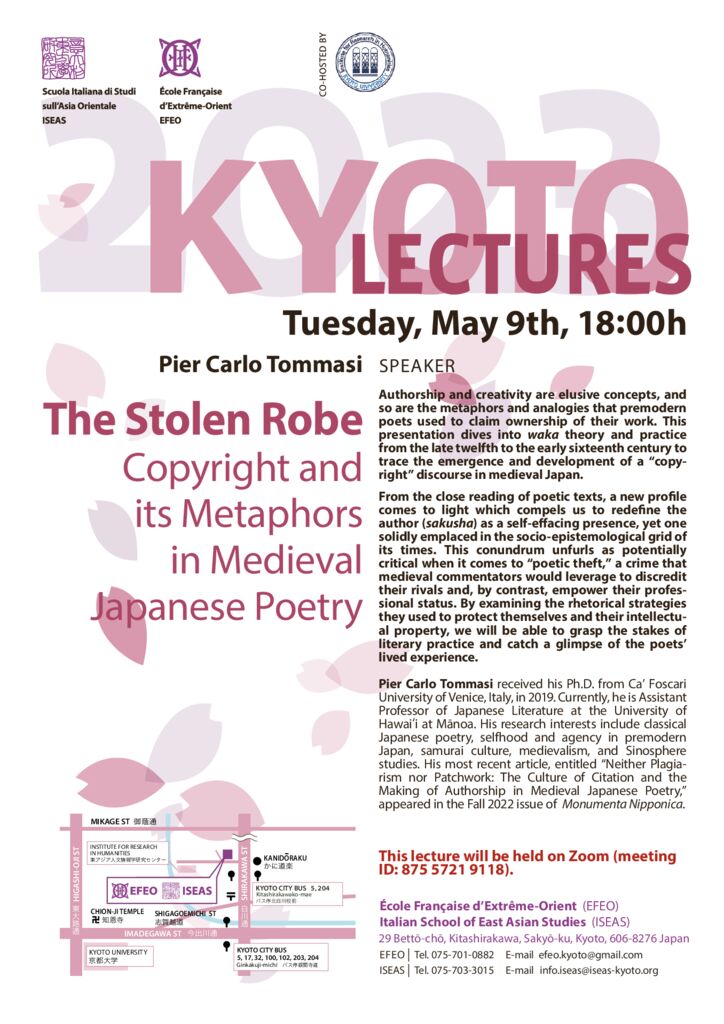Authorship and creativity are elusive concepts, and so are the metaphors and analogies that premodern poets used to claim ownership of their work. This presentation dives into waka theory and practice from the late twelfth to the early sixteenth century to trace the emergence and development of a “copyright” discourse in medieval Japan.
From the close reading of poetic texts, a new profile comes to light which compels us to redefine the author (sakusha) as a self-effacing presence, yet one solidly emplaced in the socio-epistemological grid of its times. This conundrum unfurls as potentially critical when it comes to “poetic theft,” a crime that medieval commentators would leverage to discredit their rivals and, by contrast, empower their professional status. By examining the rhetorical strategies they used to protect themselves and their intellectual property, we will be able to grasp the stakes of literary practice and catch a glimpse of the poets’ lived experience.
Pier Carlo Tommasi received his Ph.D. from Ca’ Foscari University of Venice, Italy, in 2019. Currently, he is Assistant Professor of Japanese Literature at the University of Hawaiʻi at Mānoa. His research interests include classical Japanese poetry, selfhood and agency in premodern Japan, samurai culture, medievalism, and Sinosphere studies. His most recent article, entitled “Neither Plagiarism nor Patchwork: The Culture of Citation and the Making of Authorship in Medieval Japanese Poetry,” appeared in the Fall 2022 issue of Monumenta Nipponica.
Zoom meeting ID: 875 5721 9118
The meeting link will remain posted on the ISEAS website top page from may 7.
